In its engagement with the United Nations, IFLA’s messaging centres on the importance of access to information. The type of information may vary – government, health, educational, communications – as may the specific objective, but the need for access is constant.
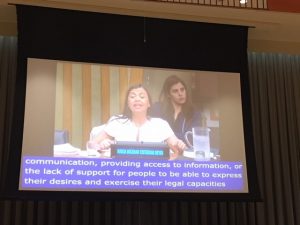
Address by María Soledad Cisternas Reyes at the Opening of the HLPF 2018
The opening session of this year’s High Level Political Forum saw a great explanation of why this is important. Ms. María Soledad Cisternas Reyes, UN Secretary-General’s Special Envoy on Disability and Accessibility highlighted how we are not addressing civil or political rights of millions of people who have no access to information.
Those without access had no way of knowing how to achieve social development and participate in society. The lack of efforts to provide meaningful, inclusive access to information left people unable to express their desires, realise their potential, and exercise their rights, not least the right to vote. Addressing the lack of access to information, for all, was vital in sustainable development.
HARD TO DELIVER (BUT THERE’S AN ANSWER)
Yet given how multi-faceted it is, delivering access to information is not necessarily easy. At a session organised by UNESCO in cooperation with the Permanent Mission of the Argentine Republic to the United Nations: “The role of Information and Communication Technologies (ICTs) in the implementation of the targets in SDG 11” the focused on how to deliver truly smart cities.
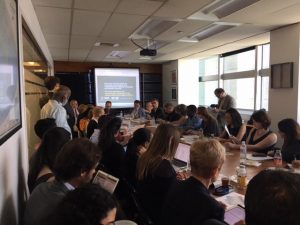
Side event by UNESCO: “The role of Information and Communication Technologies (ICTs) in the implementation of the targets in SDG 11”
Participants highlighted different elements of access – the need for transparency about government information, the need for connectivity and digital skills, the need for places where people could feel safe to go online, and the need to protect privacy yet at the same time understand community needs.
In short, access is about more than creating an app or creating a website, it also requires adapted, welcoming, and outcome-orientated support mechanisms.
Fortunately, libraries help on all of these fronts. As pre-existing, trusted public institutions, with trained, dedicated staff, ensuring citizen empowerment and participation, they provide access to information, internet connection, and digital skills, while protecting privacy.
IFLA’s intervention was very well received by the audience. To support the point, the example of Medellín (Colombia) was mentioned, where building libraries was the solution found by government in a city formerly marked by violence and exclusion. Libraries, and library parks, became community centres, chosen and owned by citizens as safe public gathering and learning spaces.
HARD TO MEASURE (BUT WE’RE WORKING ON IT)
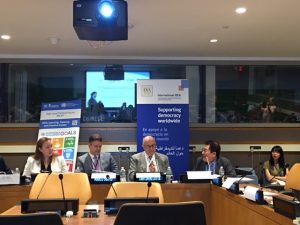
Side event: “Monitoring peace, evaluating institutions, building capacity: A data-driven conversation on SDG 16 and its upcoming 2019 review SDGs Learning, Training and Practice”
At the side event: “Monitoring peace, evaluating institutions, building capacity: A data-driven conversation on SDG 16 and its upcoming 2019 review SDGs Learning, Training and Practice”, organized by UNITAR & IDEA, the issue of lack of proper indicators to monitor SDG 16 were again addressed as a big issue that needs to be solved.
Given next year’s HLPF focus in this SDG, participants proposed to organise a meeting for SDG 16 civil society stakeholders in preparation for this review. This idea was supported by the speakers as an idea worth exploring.
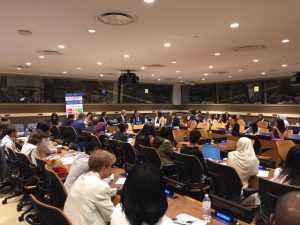
Side event: “SDGS on a local level”
There were similar reflections on the need to find ways to measure progress towards sustainable development, especially at the local level (for example “SDGS on a local level”, organized by UNITAR, and “Practical Tools to Localize and Implement the SDG11 and the New Urban Agenda in Cities in the Developing World”, organized by UN-HABITAT.
Especially in the case of target 11.4 (safeguarding cultural heritage), this was particularly important, given that data needed to be collected locally to be meaningful. Yet for them to be comparable – to be able to get a global idea of progress – there had to be enough similarity in the methods used.
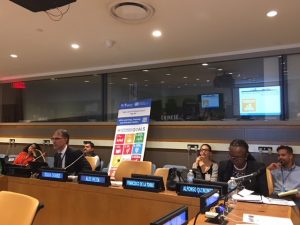
Side event: “Practical Tools to Localize and Implement the SDG11 and the New Urban Agenda in Cities in the Developing World”
IFLA is addressing both of these challenges. In order to resolve the complexity of how to measure access to information, the Development and Access to Information (DA2I) report, produced in partnership with TASCHA, suggests a basket of indicators. These can be followed over time, and the interactions between the different components explored in order to understand what an effective set of policies for access to information could look like.
Similarly, through IFLA’s Library Map of the World, we are looking at developing capacity to collect library data locally, in a form that then can be explored globally. As this develops, it will become an essential tool in the analysis of the global library field and its contribution to development.
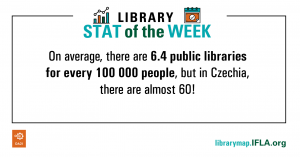 A key strength of public libraries is their reach across cities, towns and villages around the world.
A key strength of public libraries is their reach across cities, towns and villages around the world.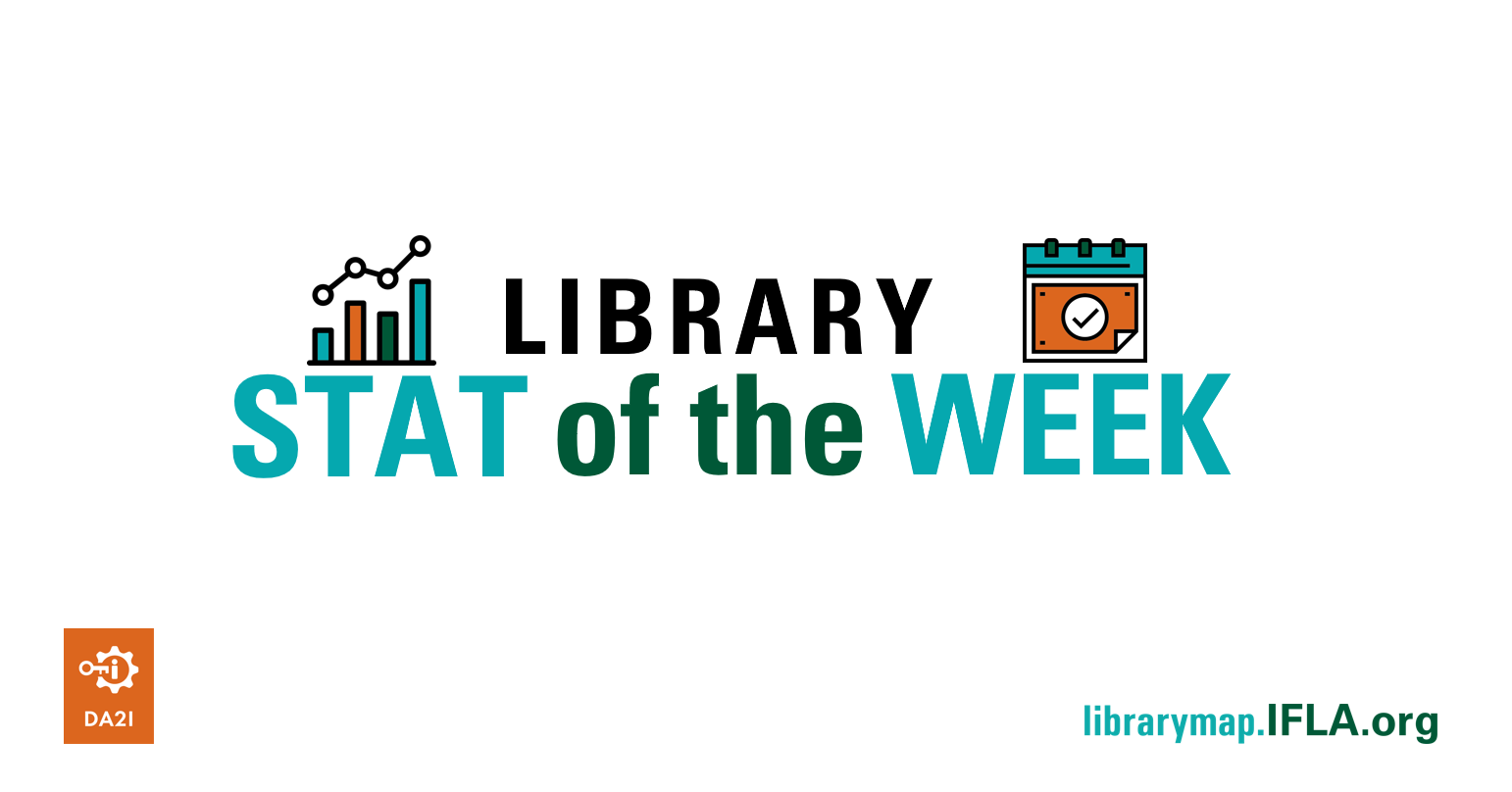
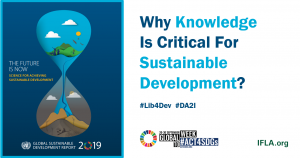 The
The 



